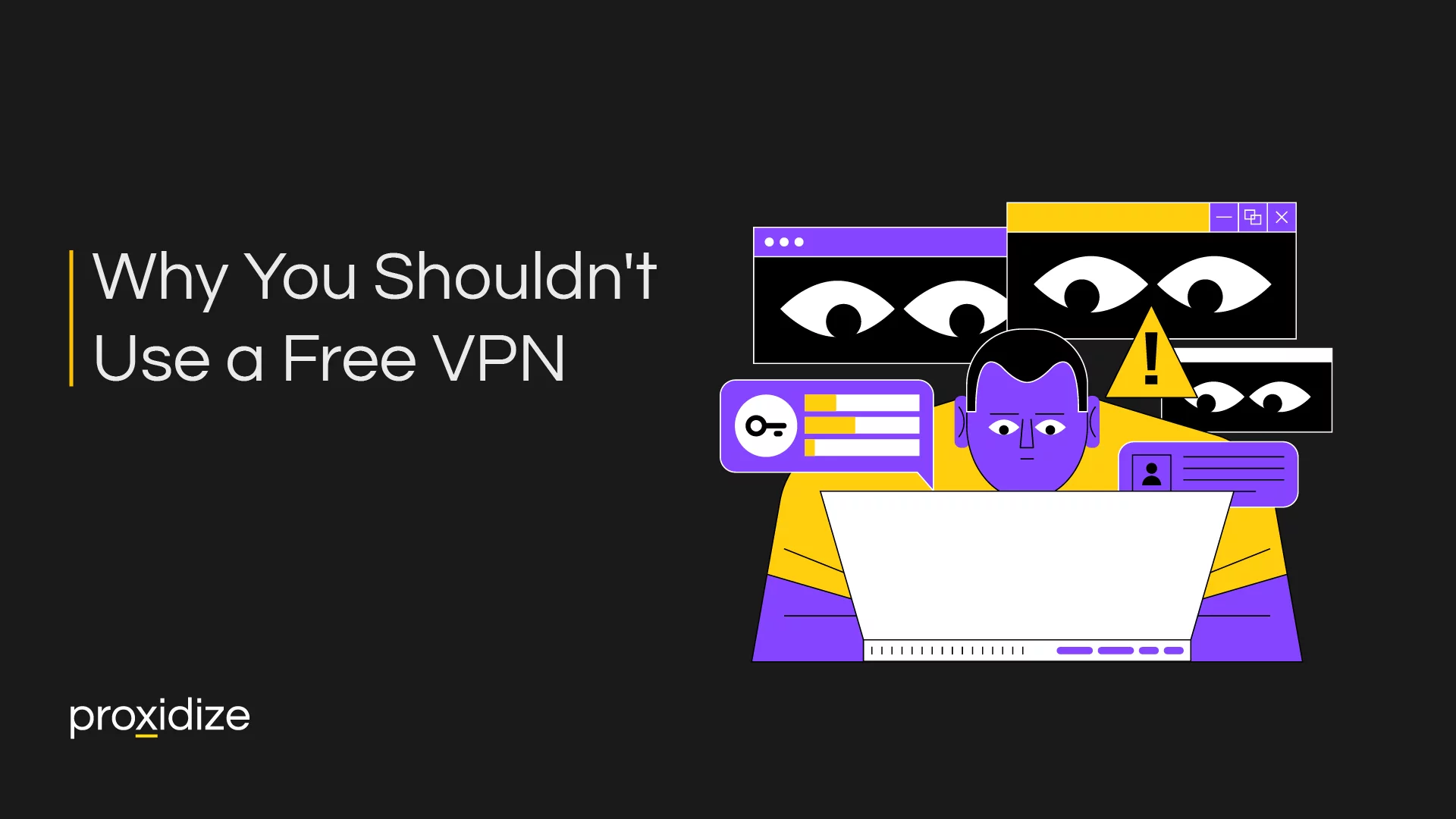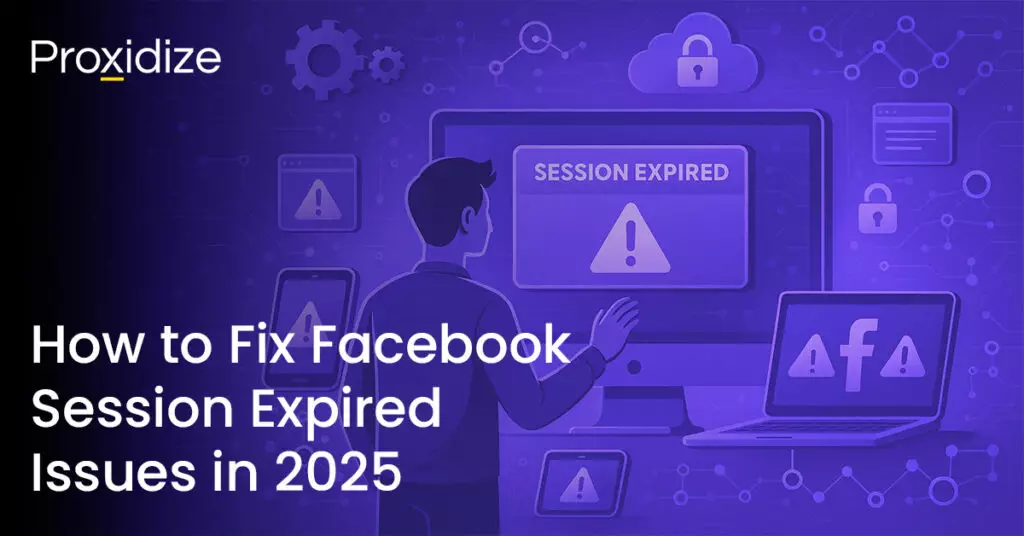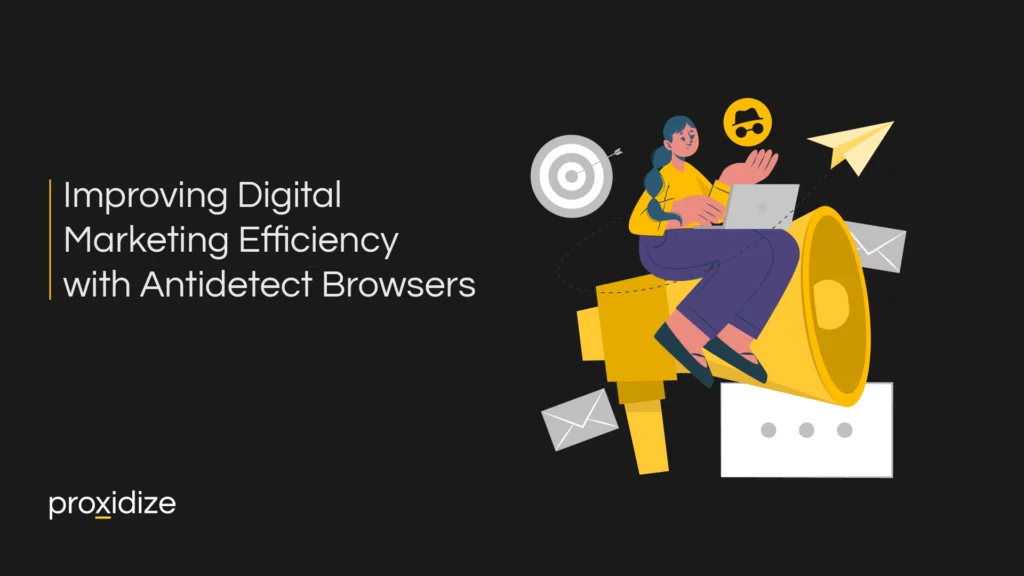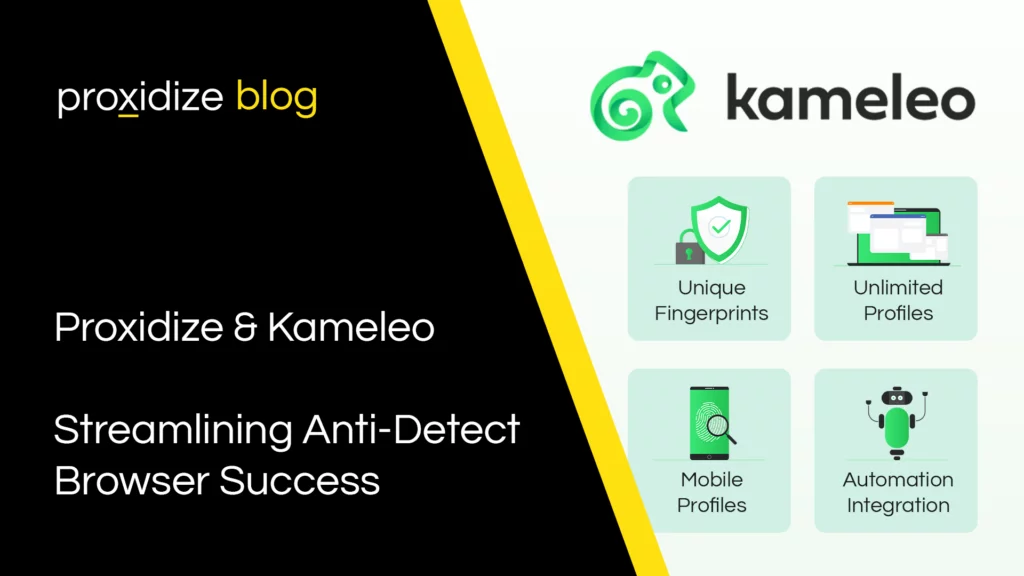We’ve all been in the situation where you hear about a movie or show you think sounds good, you rush to your favorite streaming service only to discover it isn’t there. You turn to Google and it turns out it’s not available in your region. You look up a way to change your geolocation, and lo and behold, a VPN service that offers just that. Better yet, it’s free!
In this article we’ll break down why you shouldn’t use a free VPN, even if it offers a quick and easy solution. Most actually come with serious risks that can compromise your online security and privacy. We’ll cover the types of free VPNs and why they’re risky. Finally, we’ll discuss how more often than not, to a company offering a free VPN, you are the product.
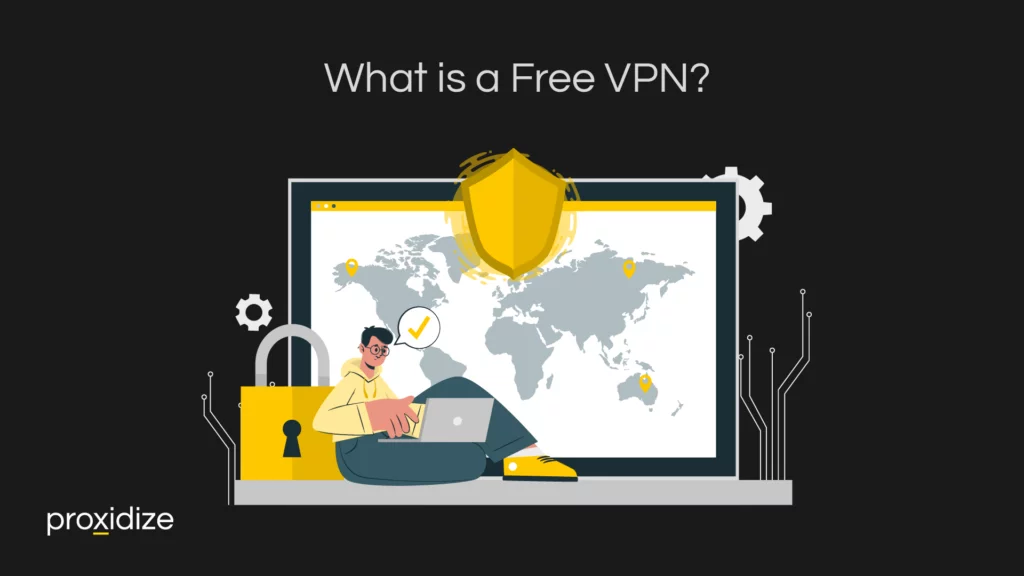
What is a Free VPN?
Free VPNs are virtual private network services that do not charge users for accessing their features. They promise to help users bypass geographic restrictions, hide their IP addresses, and secure their internet connections without any cost. Not all of them are risky or outright malicious but may still come with drawbacks.
Types of Free VPNs:
- Public VPNs: These are completely free to use and are accessible to anyone. They often lack proper security measures and can be unreliable.
- Freemium VPNs: These offer both free and paid tiers. The free version usually has limited features, slower speeds, and fewer server options compared to the paid version.
- Browser-based VPNs: These are integrated into web browsers or available as browser extensions. They are typically easy to use but may offer limited protection and server options.
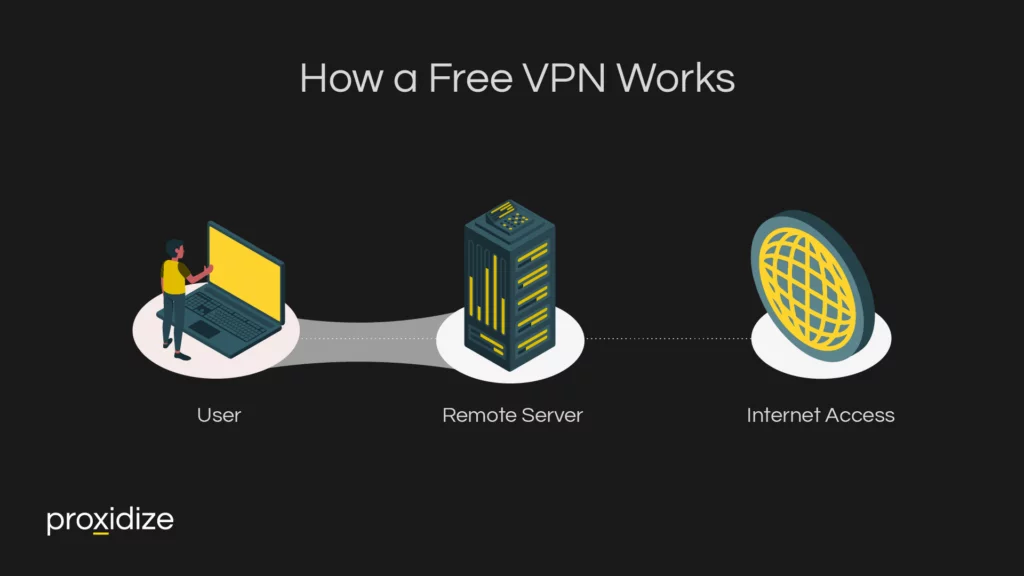
How a Free VPN Works
VPNs work by encrypting your internet traffic and routing it through a “tunnel” to a remote server, masking your real IP address and providing you with a new one from the server’s location. This process helps in securing your data and bypassing geo-restrictions.
Running a VPN service requires significant infrastructure, including servers in multiple locations, high-bandwidth internet connections, and robust encryption protocols. This setup is necessary to ensure that user data is transmitted securely and efficiently across the internet.
Maintaining this infrastructure involves substantial costs, including server maintenance, bandwidth expenses, and security measures. These costs are typically covered by subscription fees in paid VPN services.
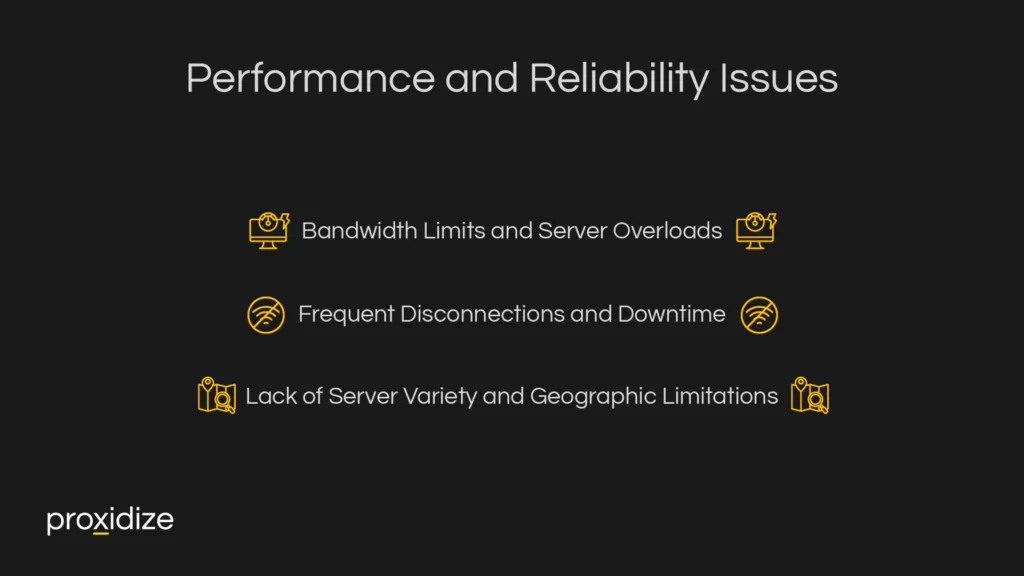
Performance and Reliability Issues
Any free version of a service will come with common bottlenecks. Even the most altruistic companies can’t give their services away for free. Separate from security risks, here are some of the most common drawbacks of a free VPN:
Bandwidth Limits and Server Overloads: Free VPN services often come with strict bandwidth limits and usage caps. These limitations mean that users may quickly use up their allotted data, resulting in reduced speeds or being locked out of the service entirely. Additionally, free VPNs typically have fewer servers, which leads to server overloads as many users try to connect at once. This congestion causes slow connection speeds and longer load times, making browsing and streaming frustratingly slow.
Frequent Disconnections and Downtime: As a result of the limited resources and infrastructure, free VPNs are prone to frequent disconnections and downtime. Unstable connections can disrupt browsing sessions, downloads, and online activities, which means users will have to frequently reconnect. This unreliability makes free VPNs an impractical choice for tasks that require a stable internet connection, such as video calls, online gaming, or streaming.
Lack of Server Variety and Geographic Limitations: Free VPN services often offer a very limited selection of server locations — usually only one — restricting users’ ability to access content from different regions. This lack of server variety means users might not be able to bypass geo-restrictions effectively, limiting their access to region-specific websites, streaming services, and online content. Furthermore, having fewer server options can result in connecting to distant servers, leading to increased latency and slower connection speeds.
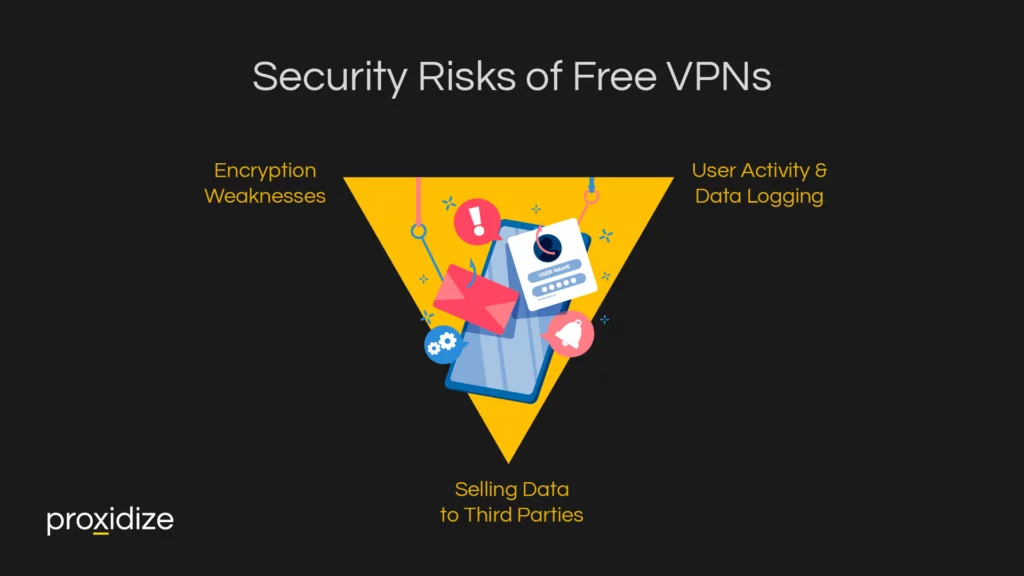
Security Risks of Free VPNs
This begs the question: How can a VPN service afford to maintain its infrastructure if it’s not charging you for using it? At best, they can save money using less-than-stellar encryption methods. At worst, you and your data become the product.
For a freemium VPN, the explanation is fairly straightforward. The free version exists for marketing purposes to encourage you to subscribe: access to more locations, more servers, and faster speeds. This is also true for built-in browser-based VPNs, which are a feature that may help a browser distinguish itself from its competitors. The biggest risk is associated with the completely free, public VPNs, who have to finance their operation somehow.
Here are some of the security and privacy risks when using a free VPN:
Encryption Weaknesses: Due to budget constraints, free VPNs may use outdated or weak encryption methods, making it easier for bad actors to intercept and decipher your data. This compromises the primary purpose of using a VPN – securing your online activities.
User Activity and Data Logging: To sustain their operations, many free VPNs log user activity and data. This information can include browsing history, connection times, and personal details. All of this information is valuable and can be sold off.
Selling Data to Third Parties: The data collected by free VPN services is often sold to third parties, such as advertisers and data brokers. This business model allows free VPN providers to generate revenue at the cost of users’ privacy and security. Your browsing habits, personal information, and online activities can be monetized, making you the product.
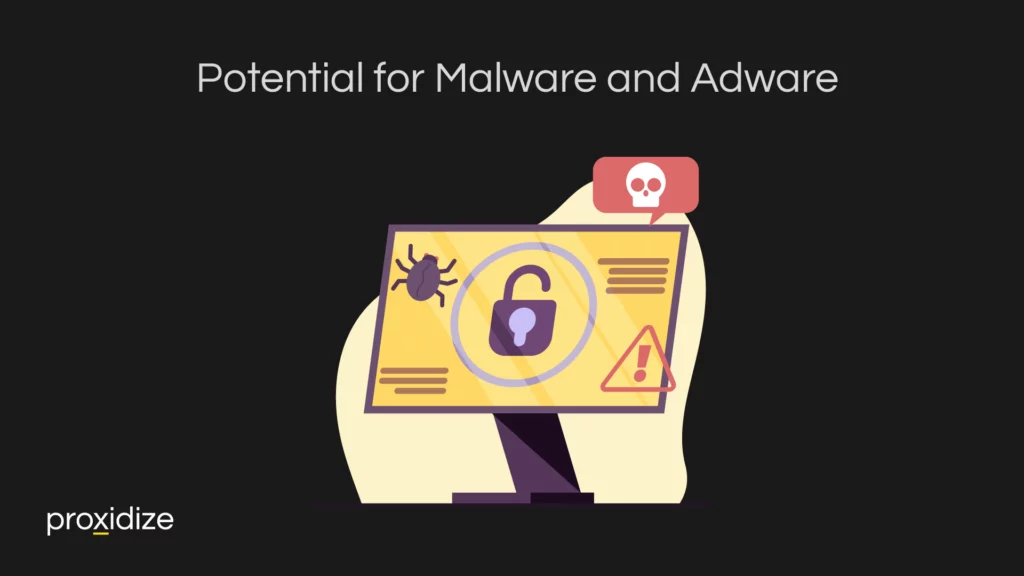
Potential for Malware and Adware
The risks can go beyond having your data logged and sold. Some free VPN services are actively malicious than that and are actually just a vehicle for malware or adware.
Malicious Free VPN Apps: Malicious free VPN apps can inject malware or adware into a user’s device. When a user installs such a VPN, the app might include hidden code designed to exploit the device. This malware can steal sensitive information, monitor user activity, or even gain control of the device. Once infected, users may experience compromised security, with personal data, login credentials, and financial information at risk.
Intrusive Ads: Free VPNs often serve intrusive ads as a way to generate revenue. These ads can appear frequently and disrupt the user experience, making browsing frustrating. Often, the ads will replace existing ones on whatever website you’re on. In some cases, the ads might be linked to malicious websites or contain harmful code themselves. This not only compromises the browsing experience but also poses additional security risks, as clicking on these ads can lead to further infections or scams.
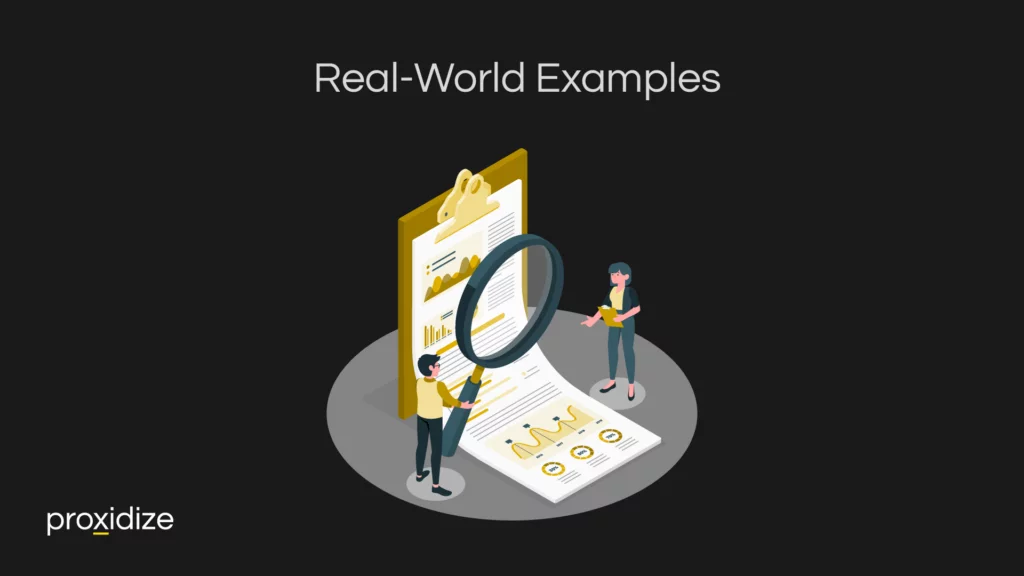
Real-World Examples
In June 2024, Top10VPN published the results of a report in which they tested the 100 most popular free VPNs for Android. The results speak for themselves.
- 71% of the apps shared data to third parties like Facebook, Yandex, and other data brokers.
- Almost 20% were flagged by antivirus software.
- Almost 90% experienced some kind of leak.
- Only 20% were equipped with the strongest encryption algorithms.
The report includes much more detailed information that is definitely worth reading though.
A key takeaway is that these 100 free VPN apps have a combined 2.5 billion installs between them worldwide. With numbers like that it becomes evident why this is such a prevalent — and profitable — business model, but one that at best compromises and at worst explicitly violates the safety and privacy of its users.
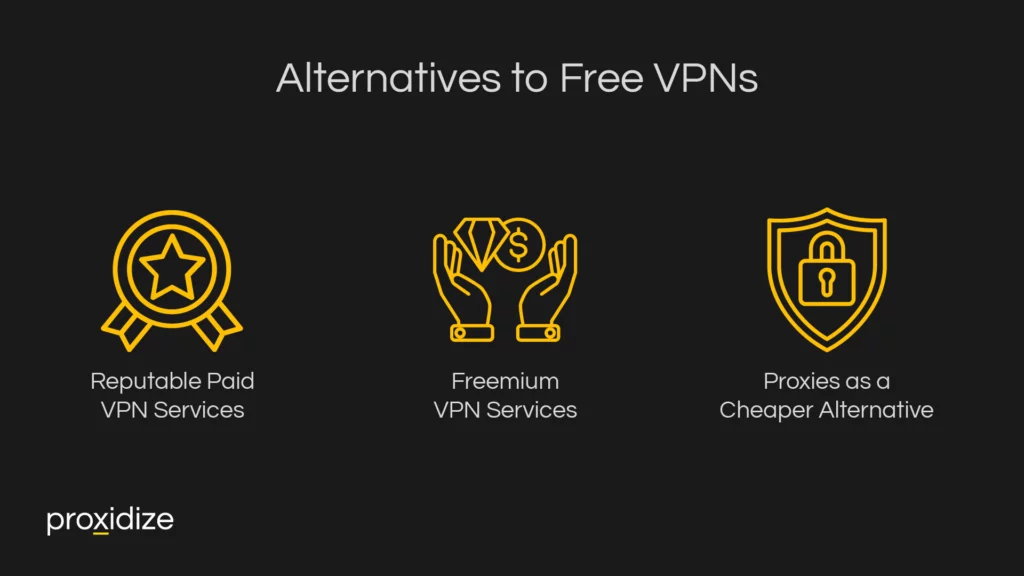
Alternatives to Free VPNs
Now what? Understanding the risks of using free VPNs doesn’t solve your problem of wanting to watch geo-restricted content. Here are some alternatives.
Reputable Paid VPN Services: Investing in a reputable paid VPN service can provide high-quality security, fast speeds, and a wide range of server locations. Paid VPNs offer advanced encryption methods, strict no-logs policies, and reliable performance, ensuring that your data remains private and secure. According to the App Defense Alliance — a partnership between Google, Microsoft, and Meta dedicated to ensuring the safety of Google Play and the broader app ecosystem — this list contains lab-tested and verified VPNs.
Freemium VPN Services: Several VPN services offer free tiers with limited features but still prioritize security and user privacy. These freemium models provide basic VPN functionality with restrictions on data usage, server locations, or connection speeds. Examples include:
- ProtonVPN (Free tier with unlimited data but limited servers)
- Windscribe (Free tier with 10GB of data per month)
While these free versions have limitations, they are a safer alternative to completely free VPNs and can be a good starting point for users on a budget.
Proxies as a Cheaper Alternative: Proxies can be a cheaper option for geo-hopping and accessing restricted content. Unlike VPNs, proxies do not encrypt your internet traffic, but still mask your IP address and help you bypass geo-blocks. There are several differences between them, but using a proxy server located in the desired region can allow you to access content that is restricted in your country.
Conclusion
While the temptation of a free VPN is strong, especially when trying to access geo-locked content, the risks far outweigh any benefit.
In summary, free VPNs are:
- Slower
- Less reliable
- Drop more often
- Compromise on safety features
- Sell your data
- At worst be actively malicious
From performance issues like slow speeds and frequent disconnects to serious security risks like weak encryption and data logging, there is no excuse to use one.
Don’t expose yourself to unnecessary risk. Don’t be the product.


